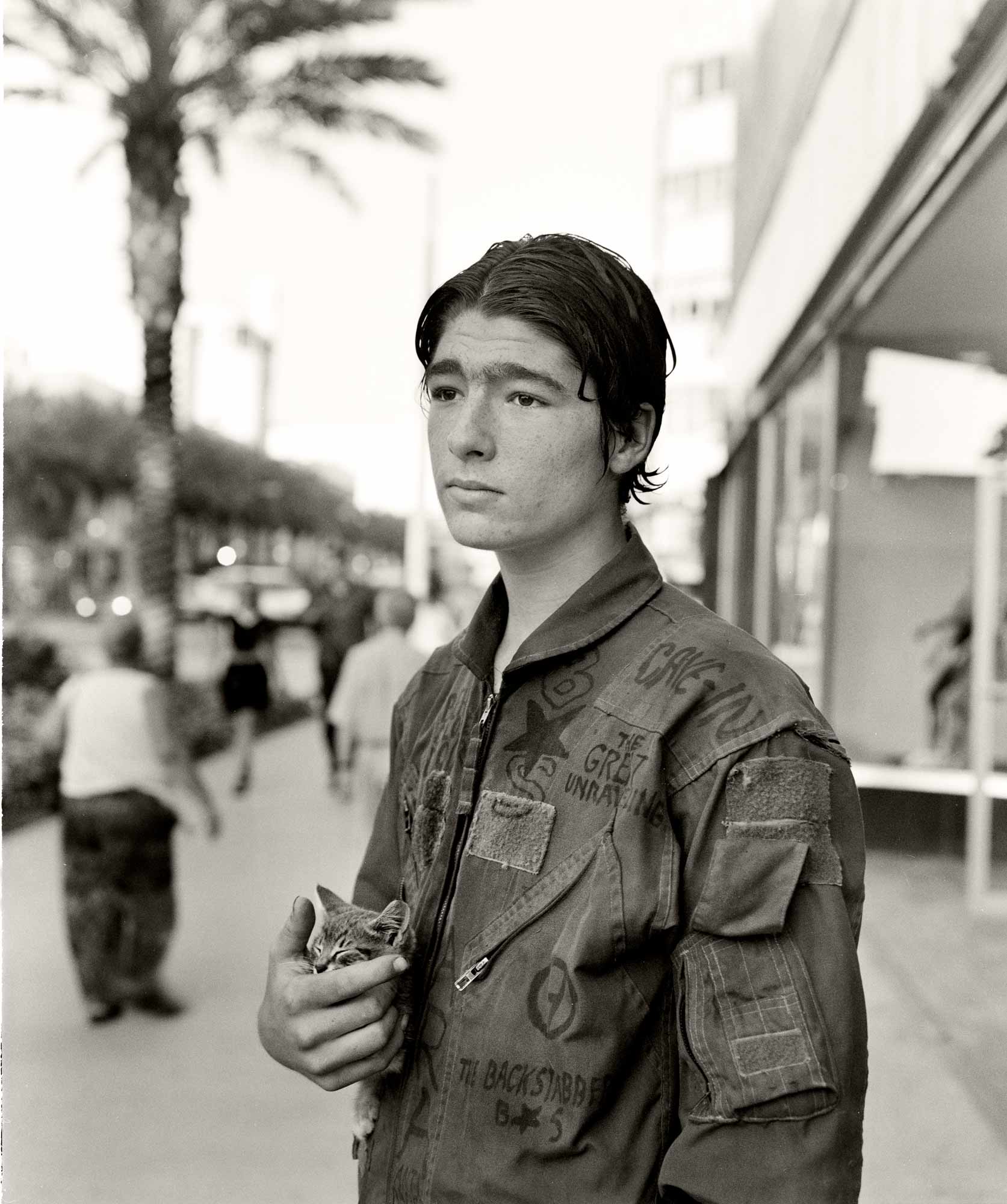Miami Beach, captured in its hedonistic heyday
- Text by Niall Flynn
- Photography by Barry Lewis

Between 1988 and 1995, British photographer Barry Lewis was a regular fixture at Miami Beach, documenting the coastal strip as it bounced back to life following a lengthy hangover.
The two decades prior had seen it beset with violence, as drug cartels clashed with US authorities (and each other) in a series of armed conflicts. On top of that, racial tensions were simmering in the city, while an increasingly ageing population also played a role in Miami’s transition from post-war party town to a place that was generally considered unattractive.
But towards the end of the ’80s, the narrative began to change. Miami had been home to a gay nightlife scene from as the early as the 1930s, but a fresh influx of arrivals from the LGBT community helped halt an elongated period of social and economic decline. As its cultural scene became exciting once more, others followed, resulting in fresh development in the city.
 “It was cheap to live there, always warm, the beaches were safe, drugs were plentiful, and there were cheap flights from the Caribbean and New York down to Miami,” Lewis remembers. “It became the party town of America – again!”
“It was cheap to live there, always warm, the beaches were safe, drugs were plentiful, and there were cheap flights from the Caribbean and New York down to Miami,” Lewis remembers. “It became the party town of America – again!”
The beach, with its eclectic cast of animated characters, became emblematic of its resurgence. For Lewin – who first arrived in the city in 1987, immediately struck by its ragged charm – it was the perfect place to be, and the perfect time to be there.
 “It was a more relaxed style of picture-taking than my usual rapid framing approach – here I could take my time and engage with people,” he says, recalling the time he spent capturing body builders, drag queens, surfers and club kids as they went about their business in the sun.
“It was a more relaxed style of picture-taking than my usual rapid framing approach – here I could take my time and engage with people,” he says, recalling the time he spent capturing body builders, drag queens, surfers and club kids as they went about their business in the sun.
“And the photography became so much more than the pictures. It became about meeting an extraordinary range of people who all talked about their lives with as much colour as the buildings around them.”
 Today, those images come together to form Miami Beach 1988 – 1995, a book published by Hoxton Mini Press. Shot in black and white – a striking contrast to the colourful environment – Lewis’ photographs capture a place in its hedonistic heyday.
Today, those images come together to form Miami Beach 1988 – 1995, a book published by Hoxton Mini Press. Shot in black and white – a striking contrast to the colourful environment – Lewis’ photographs capture a place in its hedonistic heyday.
“Maybe it was the heat, maybe it was the atmosphere of people relaxing together, but everyone was willing to be photographed. Everyone had their story. There was an acceptance and openness to strangers. We were, perhaps, all strangers there.”





 Miami Beach 1988-1995 is available now from Hoxton Mini Press.
Miami Beach 1988-1995 is available now from Hoxton Mini Press.
Enjoyed this article? Like Huck on Facebook or follow us on Twitter.
You might like

Dalia Al-Dujaili: “When you’re placeless, nature can fill the void”
Babylon, Albion — As her new book publishes, the British-Iraqi author speaks about connecting with the land as a second-generation migrant, plants as symbols of resistance, and being proud of her parents.
Written by: Zahra Onsori

Katie Goh: “I want people to engage with the politics of oranges”
Foreign Fruit — In her new book, the Edinburgh-based writer traces her personal history through the citrus fruit’s global spread, from a village in China to Californian groves. Angela Hui caught up with her to find out more.
Written by: Angela Hui

Meet the hair-raised radicals of Berlin’s noise punk scene
Powertool — In his new zine, George Nebieridze captures moments of loud rage and quiet intimacy of the German capital’s bands, while exploring the intersections between music, community and anti-establishment politics.
Written by: Miss Rosen

The rebellious roots of Cornwall’s surfing scene
100 years of waveriding — Despite past attempts to ban the sport from beaches, surfers have remained as integral, conservationist presences in England’s southwestern tip. A new exhibition in Falmouth traces its long history in the area.
Written by: Ella Glossop

Southbank Centre reveals new series dedicated to East and Southeast Asian arts
ESEA Encounters — Taking place between 17-20 July, there will be a live concert from YMO’s Haruomi Hosono, as well as discussions around Asian literature, stage productions, and a pop-up Japanese Yokimono summer market.
Written by: Zahra Onsori

We are all Mia Khalifa
How humour, therapy and community help Huck's latest cover star control her narrative.
Written by: Alya Mooro

